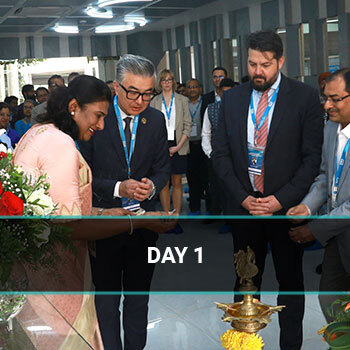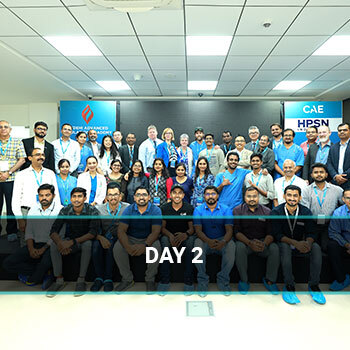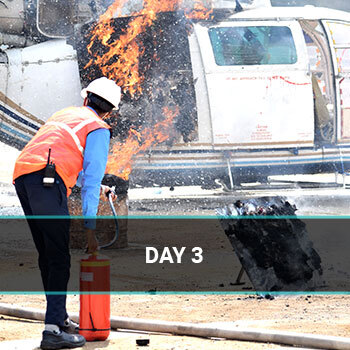
A three-day HPSN (Human Patient Simulation Network) India 2023, an International Simulation Conference, was organized by Vydehi Advanced Simulation Academy in collaboration with CAE Healthcare at Vydehi Institute of Medical Science and Research Center Campus, Bengaluru.
The conference aimed to create simulation experiences to prepare healthcare professionals for emergencies and provide effective and efficient responses. A diverse set of medical professionals registered at the event for simulation workshops, elite panel discussions, and talks from eminent national and international personalities. Six pre-conference workshops formed part of the first-day events. The workshops were spread across six simulation zones with six different themes.
Zone 1: Trauma management using ultrasound techniques.
Zone 2: Obstetrical and neonatal clinical experience.
Zone 3: Low-flow anesthesia and hemodynamic stability.
Zone 4: Hands-on simulation of the acute cardiac syndrome.
Zone 5: Critical interventions in emergencies.
Zone 6: High-fidelity endoscopy, laparoscopy, and neurosurgery simulation workshops.
The simulation surgery workshop was conducted with the primary objective of enhancing patient safety and reducing the potential for error. Trainees were engaged in target-based, hands-on training using simulators, thereby facilitating a smooth transition from assistance to independence in surgical performance.
Day Two of HPSN India 2023 began with an address by the chief guest and keynote speaker Dr. Haru Okuda, CEO and ED at CAMLS – University of South Florida, USA, on ‘Future of Healthcare Education and Experiential Learning,’ followed by a question and answer session. Succeeding events included Elite Panel discussions on Addressing Medical Errors through Simulation and Interprofessional Simulation Education. In addition, lectures on clinical events and experiences from errors were held concurrently.
A product showcasing at the Vydehi Digital Museum was also organized, which was followed by a tour of VASA displaying digital solutions, trauma training solutions, a birthing suite, an operating and critical care training zone, augmented reality, surgical simulation zone, an apartment and ambulance zone, ultrasound simulation zone, and Medimagic. The day ended with an Indian Simulation Championship League and a paper and poster presentation. The first prize was awarded a 20 gm silver coin to each winning participant. The first runner-up was awarded a 10 gm silver coin each participant.
The star event of the conference, an Air Crash First Responders Disaster Drill, the first of its kind in India, was conducted on the third day. A medical helicopter crash mock drill was simulated as an emergency scenario that involved a helicopter crash and the response of medical personnel and emergency services. The purpose of the drill was to prepare medical professionals and emergency responders for the possibility of a real-life helicopter crash and to practice their response and rescue operations. The objective of the drill was to test the coordination and communication among the emergency services and to identify the gaps or weaknesses in the response plan. The cut suits were utilized to create hyper-realistic moulage on standardized patients enabling the participants to triage, assess, identify life-threatening conditions, and intervene immediately. Jeffrey May, Cut Suit Subject Matter Expert Strategic operations, STOPS, USA, and Jean Francois Ringeval, Clinical Educator at CAE Healthcare France, were the faculty in charge of the air crash first responders disaster drill.
Continuing on Day 3, there were panel discussions on the future potential of simulation in healthcare and clinical nursing education held concurrently with lectures on simulation gamification and innovation of simulation and digital transformation. Towards the end, the final round of the Indian Simulation Championship League was conducted, followed by the wrap-up of the conference along with the distribution of HPSN awards.
The future potential of healthcare simulation was said to be enhanced by incorporating artificial intelligence and machine learning. These technologies could be used to personalize training and provide real-time feedback to learners. There has been a need for standardization in healthcare simulation-based training to improve the quality and ensure consistency across different simulation programs and institutions. There was said to be a potential for healthcare simulation to be used in training for the rare and complex medical conditions that healthcare professionals may not frequently encounter in real life. Gamification of the clinical scenarios can be used to make healthcare simulation more engaging and effective for learners.




